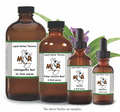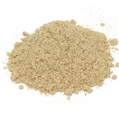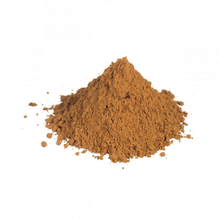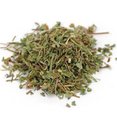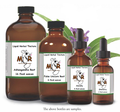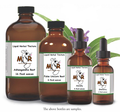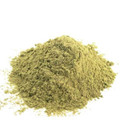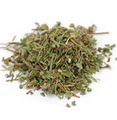 Loading... Please wait...
Loading... Please wait...- Home
- Bulk Herbs
- Herbs (J-L)
- Kola Nut Powder
Product Description
Kola Nut Powder
Also Known As – Centella asiatica
Wild Crafted - Brazil
Overview - Tropical Africa is the native home of the towering kola tree growing up to 40 feet (13 meters) tall. Its yellow flowers tinged with purple bear reddish-brown seeds about the size of a walnut with almost no taste but rich in caffeine. The Igbo, a tribe in southern Nigeria, consider the kola nut tree to be the first tree (and fruit) on earth. They consider the nut to be a symbol of hospitality, kindness and fraternity. Throughout Western Africa, a small piece of nut is chewed before each meal to promote digestion. It was introduced to Europe in the mid 16th century by Portuguese traders. The nut is also thought to improve the flavor of any food and to counteract the effects of drinking tainted water.
Medicinal Uses – Cola nut is the seed of the cola nut plant. Cola nut is used widely in Nigeria and many West African countries as part of traditional hospitality, cultural, and social ceremonies. It is also used to make medicine.
Cola nut is used for short-term relief of fatigue, depression, chronic fatigue syndrome (CFS), melancholy, lack of normal muscle tone (atony), exhaustion, dysentery, a type of diarrhea called atonic diarrhea, weight loss, and migraine headaches.
Parts Used - The whole nut. The nuts, either whole or cut retain their caffeine content better than kola nut powder and it is recommended that you grind your Kola immediately before using.
Precautions - Contains caffeine, a nervous system stimulant. Excessive use of caffeine can cause insomnia, nervousness, increase heart rate and the other symptoms of excess caffeine intake. Exercise caution when using with other central nervous stimulants, including bronchodilators or adrenergic drugs. We recommend that you consult with a qualified healthcare practitioner before using herbal products, particularly if you are pregnant, nursing, or on any medications.
Preparation and Dosage - Kola, as its name suggests, is a main ingredient in many traditional colas. In herbal medicine, the nut is usually soaked in alcohol to make tinctures. May be taken as tea although bitter, and the powder can be taken as a capsule.
Disclaimer - The information presented herein by Mountain Maus’ Remedies is intended for educational purposes only. These statements have not been evaluated by the FDA and are not intended to diagnose, cure, treat or prevent disease. Individual results may vary, and before using any supplements, it is always advisable to consult with your own health care provider.
Information from webmd







